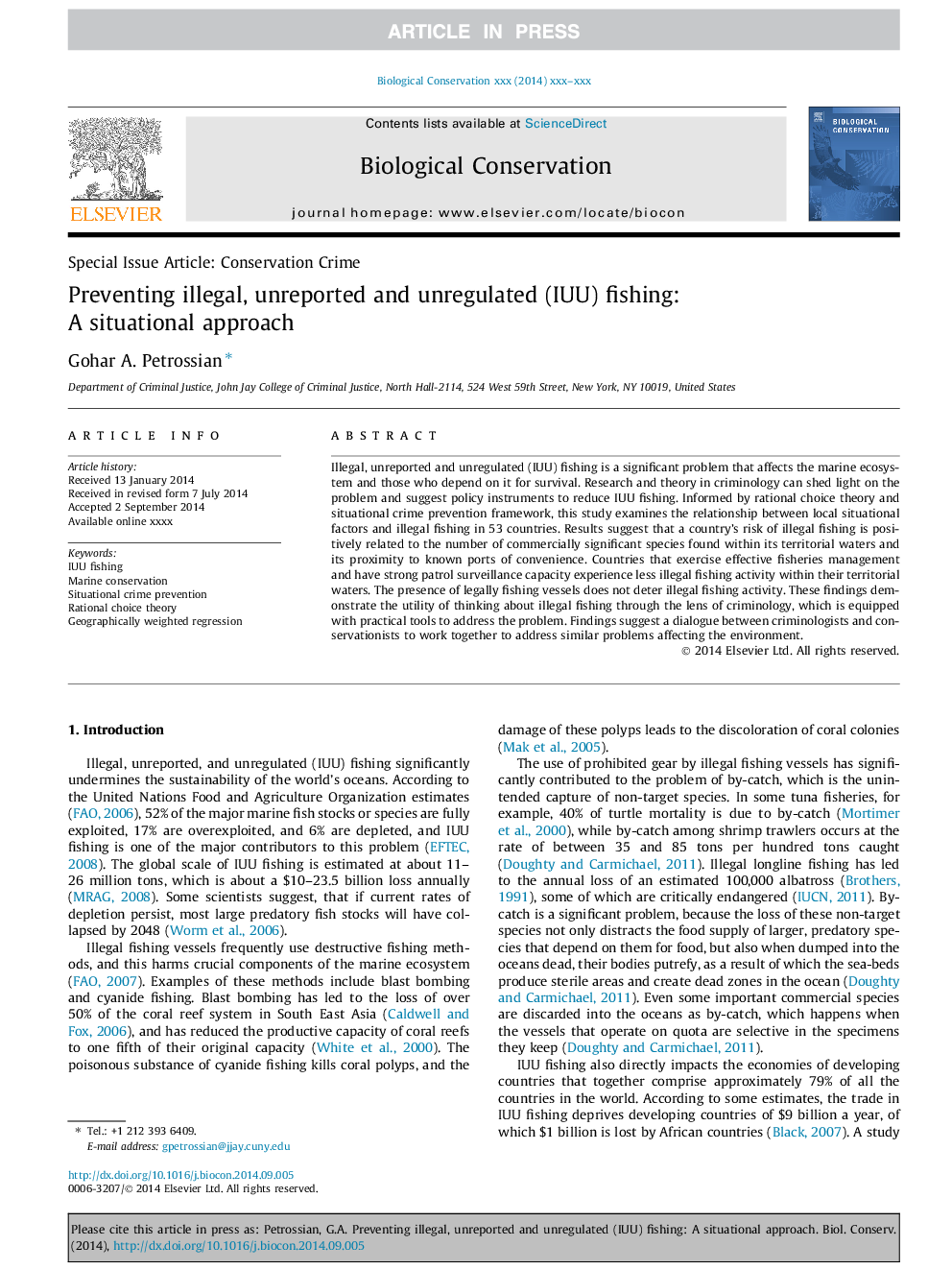| Article ID | Journal | Published Year | Pages | File Type |
|---|---|---|---|---|
| 6299161 | Biological Conservation | 2015 | 10 Pages |
Abstract
Illegal, unreported and unregulated (IUU) fishing is a significant problem that affects the marine ecosystem and those who depend on it for survival. Research and theory in criminology can shed light on the problem and suggest policy instruments to reduce IUU fishing. Informed by rational choice theory and situational crime prevention framework, this study examines the relationship between local situational factors and illegal fishing in 53 countries. Results suggest that a country's risk of illegal fishing is positively related to the number of commercially significant species found within its territorial waters and its proximity to known ports of convenience. Countries that exercise effective fisheries management and have strong patrol surveillance capacity experience less illegal fishing activity within their territorial waters. The presence of legally fishing vessels does not deter illegal fishing activity. These findings demonstrate the utility of thinking about illegal fishing through the lens of criminology, which is equipped with practical tools to address the problem. Findings suggest a dialogue between criminologists and conservationists to work together to address similar problems affecting the environment.
Keywords
Related Topics
Life Sciences
Agricultural and Biological Sciences
Ecology, Evolution, Behavior and Systematics
Authors
Gohar A. Petrossian,
